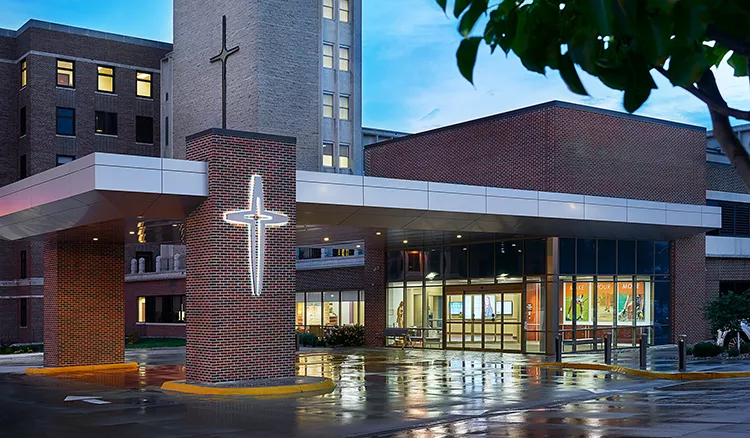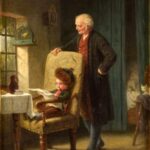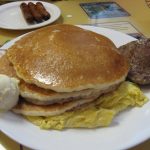Curriculum vitae is Latin for the “course of one’s life.” The modern academic form with its simple chronology of dates and locations might not be the most obvious narrative method. But a professor’s list of publications, courses taught, and services rendered is supposed to help you understand the person whose name sits atop it. The CV’s purpose usually is to convince its disinterested observer to grant a position of employment. But if read differently, perhaps with a familiar, even biased eye, it offers something else.
Who the reader is then matters very much. Looking at my father’s CV, I learn something about both him and myself, something about our relationship, something perhaps I couldn’t learn sitting next to him. Such observations might be important only to me. But perhaps my reading can teach us all something about how we look at others, how we value people over their resumes. I admit that looking at the CV of my father the professor as a professor certainly is a rare privilege. Few get to do what I am doing. But while our method of listing accomplishments in higher education may be unusual, the underlying process of biography making–sifting memories and lies, moments and regrets–is what all sons do with their fathers’ lives.
I’ll begin with a brief summary before sifting through the CV proper:
Before his retirement, my father was a pediatrician and professor of neonatology at our state’s medical school for more than thirty years. He saved lives, the lives of babies born prematurely, addicted to drugs and alcohol, their organs sometimes sitting beside their tiny bodies. And he taught others how to do the same.
And who am I, the reader? I work at one of our state’s liberal arts colleges trying to persuade 18-year-olds to convert to a dying major. Or merely do the reading. For those who are already believers, I teach them how to defend the faith. I don’t save lives. Though from time to time, I suppose my teaching changes lives.
Despite the current narratives about the death of the humanities and the rise of STEM, there’s less contrast between our respective professions than you might imagine. When my father served on the medical college’s admissions panel, he loved applicants who chose English undergraduate majors because they thought differently. I thought about his preference recently amid our state’s need for more doctors and the construction of a second medical school to supply such. I wonder how many–if any at all–will be English majors. My relatively young career and short CV depends on it.
The English major has been declared dead in America. And in an ironic twist of fate, it may need doctors to save it. I am hopeful my observations about my father the doctor’s CV as compared to mine might convince the powers that be that both disciplines matter. Or perhaps I am so cynical that looking at my father’s CV is merely a hapless way to yearn for a time now lost to higher education. A way for a burn-out to waste time in his office. Perhaps I am longing for something that wasn’t there to begin with.
That has a double meaning because I can’t be sure my father’s CV has ever existed. I am not looking at it now as I write. In fact, I have never seen it. Maybe it existed at some point, but my recreation of it for this essay may be the only time its contents have ever been amassed. Maybe. I asked my father the other day if he had a copy. If you have seen his computer, you know file organization is not his strong suit. “Apparently didn’t save; cannot find anywhere,” he texted. Maybe it existed. Maybe it didn’t. But also if the latter, then by creating something that never was, I am returning to a past that never happened. If all that sounds too philosophical, perhaps looking back can create a future. If we read the past rightly.
Scholarship
When looking at a CV one must understand that the publications take center stage. Any academic can tell you their stats. If there were academic baseball cards–and we have academic all stars, no doubt–these numbers would be on the back. My father’s stats are remarkable.
Over the course of the first five years of his academic career, from 1987 to 1992, my father was a lead or co-author on twelve publications, seven in 1990 alone. While he never published as a single author, which is typical in his academic discipline, this is a heck of a run.
Even if it matters to you, there is really no good way to compare his stats to mine. But if you want the raw data, my father’s early career stats are better than mine. Slightly. Last year in my eighth year of teaching, I published my eleventh article, book chapter, or monograph. I have two books, which are more than what is expected in my field and at my tier of university. While we both have met or exceeded expectations in that first segment of our careers, this is where the parallel diverges.
His burst of publication in a short amount of time is followed by a significant slow down. After 1992, with about 25 years left before retirement, he only had five publications. I mention this particular aspect of my father’s CV because a certain segment of higher education critics might consider my father academic “deadwood,” a lazy professor who did nothing after getting promoted. Such a myth has pushed states around the nation to implement a review of tenured faculty every five years (though we are evaluated every year). As these reviews have strengthened, the expectations for any professor have grown significantly. I am a product of that political push. In other words, the pressure upon me as an English professor at a mid-sized liberal arts school well into the 21st century to publish after tenure at a similar or even greater pace is more than it was for my father the medical school professor in the 90s.
Yet even without institutional evaluations, my father was never “deadwood.” He was a doctor and a professor. He often liked to say he was the top billing doctor in his department. I’ll get called deadwood for publishing less, even though the majority of my job is teaching.
Because of that mythical deadwood and the pressure it brought, a niche industry for CVs has developed: impact factors. These are a set of numbers included next to or even above the raw publication count on a CV that shows how a CV extends beyond the four corners of the document. These “factors” are defined by the list of other scholars who have cited your work. But not all impacts are created equal.
In 1990, the year I turned 11, The Journal of Pediatrics published a study my father and other doctors conducted on the infants kept alive in their hospital by a certain machine only a few hospitals had. More than a quarter of the infants included in the study had died, with nearly 40 percent of those dying during the process of moving from a small hospital to one that had this machine. My father and his colleagues argued for earlier transfers. Patients on this machine travel by road, helicopter, or fixed-wing aircraft sometimes for hundreds of miles to get to a hospital and machine that can sustain them. More than 25 years later, a 2016 study citing my father’s article notes that among all such pediatric cases during the 2000s involving transfers to get to this type of machine, nearly 1400, only two died during transfer. That mortality rate is due in part to my father’s work.
The Journal of Pediatrics has an “impact factor” of five or more. That number measures the number of times an average paper in a particular journal is cited during the preceding two years. Google Scholar tells me my father’s paper has been cited more than 90 times. His scholarship in total has been cited more than 230 times. My Google scholar profile shows 23 citations across my young career, peaking at seven in 2019.
But even in the humanities, the “impact factor” doesn’t tell the whole story.For example one of my articles, a study on sermons around the time of the 2016 presidential election, was cited by two Nigerian scholars in 2019 writing about a specific pastor’s “thoughts on leadership and citizenship tasks in consolidating Nigeria’s democracy.” That pastor has run for president on a pro-democracy, anti-corruption platform. He led massive protests in 2010 to restore democratic norms in Nigeria. My article was among six that the authors used to justify their method and topic. I didn’t save democracy in Nigeria. But the relationship between democracy and religion is a key topic globally. How those two operate together will shape lives.
My father’s first publication came from a collection of papers presented at an international cancer symposium in Denmark in 1985. He didn’t get to go because he wasn’t the lead author. The publication itself didn’t happen until 1987. The abstract describes the attempts to save the lives of three children who developed severe respiratory distress almost two weeks after bone marrow transplants. Imagine a 13-year-old boy getting new bone marrow and it going so badly he dies. A seven-year old girl and six-year-old boy were also part of the report. The two boys died from complications.
In an interesting coincidence, my first publication also was international. The paper was an essay I worked on for a class. The professor helped me refine it. And not knowing anything about academic publishing then, I sent it off to a philosophy journal in Britain, thinking it had better odds of getting published there because not only was it not philosophy, it also was not a big country, therefore they must get only a few submissions. They couldn’t turn me down because they needed me, I thought.
That ignorance had followed after I submitted an essay I wrote in my first ever graduate literature course and was politely rejected with a lengthy letter letting me, in a very kind way, that I had no idea what I was doing. In other words, I was so punched in the gut by that kindness, I shipped my next piece of arrogance to another country.
And you know what? They accepted it. And I was right in some manner. I was published in a journal that had an impact factor of .1. If you are confused on how a paper can be cited .1 times, consider also the impact factor is “a ratio which divides a journal’s received citations by a count of its published articles,” according to the group who creates such ratios. This is “an approximation of the mean citation rate for a typical article,” it notes. In other words, very, very few people read my work and even fewer cited my work. In fact, in the more than 12 years this paper has been in the scholarly ether, only one person has cited it that I can find.
Teaching
When his first publication came, my father was working at the Southern Illinois University School of Medicine. During our time in Springfield, our dog died. He was a large mastiff hound that played a large role in our family. From what my father told us, it was clear how he died. He had somehow strangled himself on the chain that allowed him to run back and forth between a tree and our house. Perhaps there was a moment then with my father when the dog was alive, in his final minutes. Perhaps he tried to save the dog. Perhaps all that was left to do was a postmortem examination. That day is not on my father’s CV.
At the end of his residency in Illinois, we moved to Georgia. And my father begins the publication run that will define his CV. The catalog for the Medical College of Georgia during the late 80s and early 90s shows a six-week clerkship in Pediatrics and other courses which my father surely would have taught in rotation. It seems my father took to professing well. By 1993 my father was honored by the pediatric residents–the students he would have taught–as Educator of the Year. He won that award again in 1996.
Early on, becoming a professor didn’t seem to be in the cards for him. His first job after medical school was as a general practitioner in a small town. That small town played and continues to play a large role in our family. It shaped how my father sat with parents of newborns. And because of that, it shaped how he taught younger doctors to do the same.
I was in high school when my father won those teaching awards, never dreaming I would be a teacher. And now I have been a teacher at some level for more than 20 years. One way to judge whether I am any good at it is to note I have never won any award for it. I could blame technology. Anonymous critics abound in the “rate my professor” era. My overall score has improved over the years, but it’s still 2.8 out of 5.
Before becoming a professor, I was a high school teacher after my initial career as a reporter abruptly ended. I was terrible at teaching high school for many reasons. Some of those reasons were classroom pressures that fade dramatically on a college campus.
But now a decade into teaching college students (many of whom are dual enrolled as high school students) I see different pressures–or better, I am beginning to pay attention to pressures that were there all along. And I found what I am good at in a classroom. Which is apparently saying a few words about writing and then asking students to write. In an irony some in my field will understand, I am trained in writing well enough to argue that one can’t teach writing.
I suspect my father was seen as a good teacher because of how he saw the pressures of what being a doctor meant. He understood them in a way only someone who has withstood them knows. That knowledge is not on his CV. It’s etched in his body, though. I have seen it.
Like many fathers who were sons of the silent generation, he was not the best teacher at home. Also not on his CV is when he tried to teach me how to drive a stick shift. He took me to the empty parking lot of my high school. Inside the building I was a top student. Outside I kept failing. I hadn’t done this bad since getting a C in shop in middle school. Why wasn’t I one of his successful students that day? I didn’t grasp the feel of the gears, the three on a tree, quick enough to make the shift before the car stalled or I backed into something.
Surely the doctor who performed surgery on babies as premature as they come knew how to feel instruments and grooves you can’t see. And as a professor honored for his teaching he knew how to pass on to others that sense of things. Yet I did not inherit that.
Service
Looking at my father’s CV and mine you might see that we both have sought to influence students of many ages.The space devoted to service on any CV is often not only underplayed but actively disdained in academia. It’s something we do and are forced to do to keep the university system running. We serve on hiring and promotion committees to keep the pipeline open. We serve on curriculum and program committees to address where the discipline and careers are heading. And we serve on other bodies, doing other stuff to put it on our CVs.
I am sure my father did that as well. But he was also an organizer who sought to better communities. While he was on that feverish five-year publication run, he also led an annual fundraiser for the children’s hospital attached to the medical college. In 1988, he restarted a long-time beleaguered junior varsity basketball end-of-season tournament for local high schools with proceeds benefiting that hospital and its young patients. Over the course of the next seven years, the tournament raised about $5,000. He orchestrated corporate sponsors and a group of volunteers and sold entry tickets for $1.
That might have appeared on his CV. But what would be missing from the CV line is that he also routinely officiated those games for free. My father has been a sports referee for as long as he has been a professor. And he continues to serve the referee community by being their teacher. He routinely conducts training around our state and writes exams for referees in training. And he told me recently he had an article accepted in Referee Magazine. He certainly could add another line to the CV. If he can find it. I suppose I will add a line on my CV now too for this essay. Creating such a line means the scholar has learned something, something he now professes.
What have I learned? Reading for the shape of a life can be medicinal, especially when we allow that life to diagnose and heal ourselves. And maybe then that understanding can encourage doctors of all kinds–but especially scholars of the humanities–to think differently about their life.
Image via University of Iowa Hospitals & Clinics




